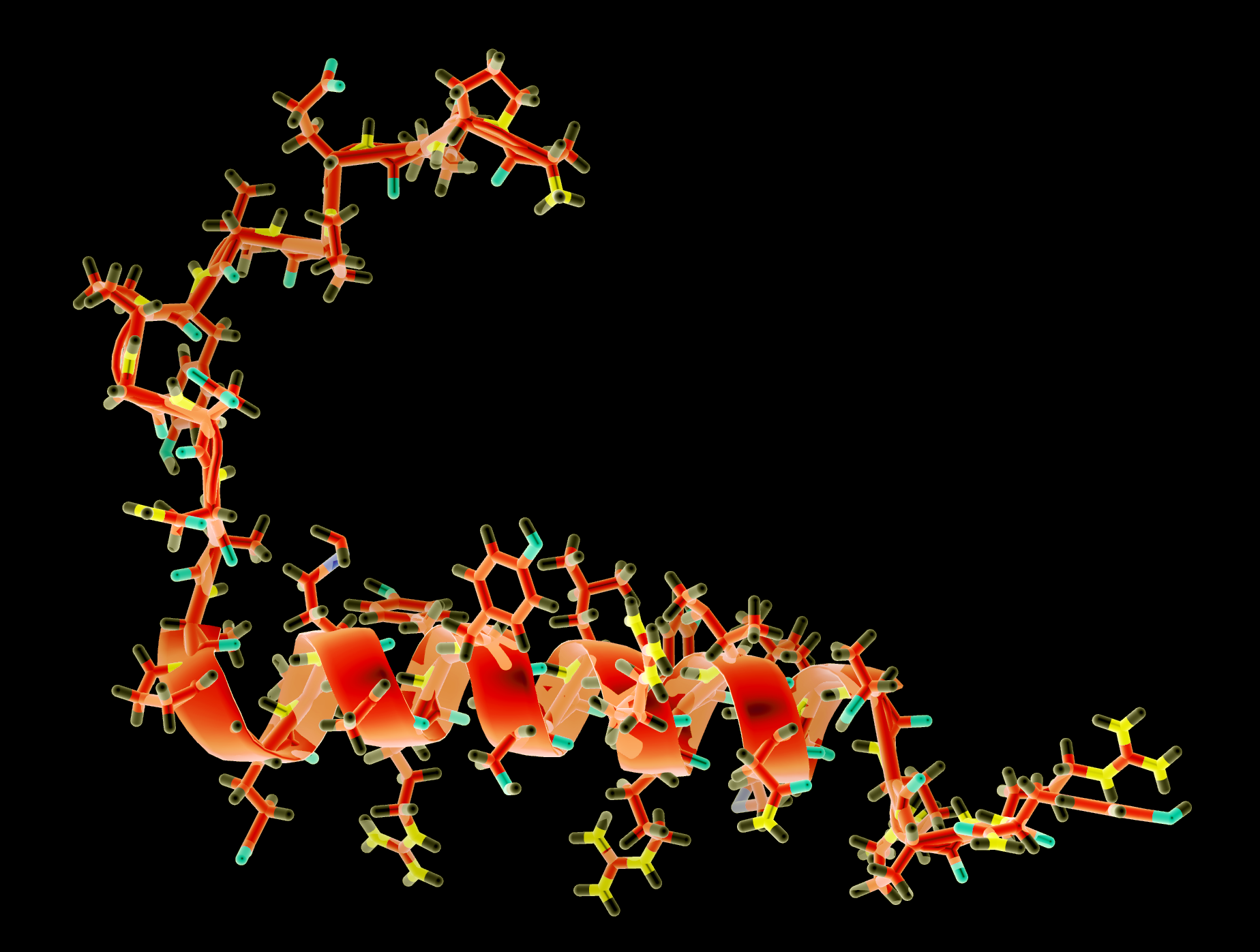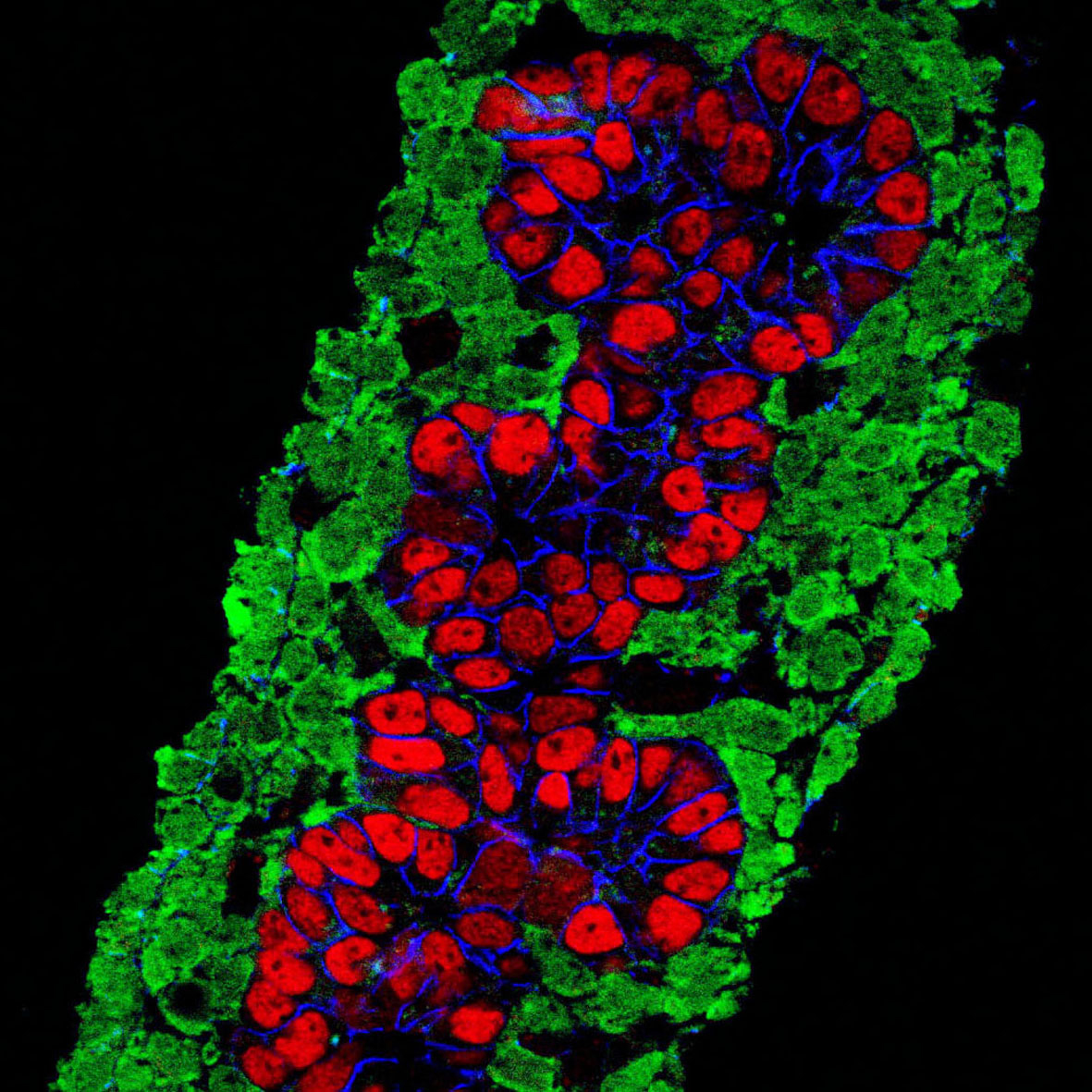
Type 3c diabetes mellitus (T3cDM), or “Pancreatogenic” diabetes is classified by the American Diabetes Association and by the World Health Organization as diabetes due to impairment in pancreatic endocrine function related to pancreatic exocrine damage due to acute, relapsing and chronic pancreatitis (of any etiology), cystic fibrosis, hemochromatosis, pancreatic cancer, and pancreatectomy, and as well rare causes such as neonatal diabetes due to pancreatic agenesis. It is characterized by severe, erratic, and difficult to control, swings in glycemia.
Pancreatic disease or other damage to the pancreas can impact its ability to produce hormones. This includes not only islet β-cell secretion of insulin but also counterregulatory glucagon secretion from islet α-cells and pancreatic polypeptide section from PP-cells such that doses of insulin to control glycemia can unpredictably lead to episodes of severe hypoglycemia. Pancreatic exocrine insufficiency is also a defining characteristic of type 3c and results in malnutrition and nutrient deficiencies.
Previously underdiagnosed, it is now understood that approximately 9% of all diabetes cases are type 3c, and as much as 15-20% in India and Southeast Asia. While not well-known in the general public, this indicates the incidence of type 3c is higher than type 1 diabetes. It is also more severe than either type 1 or type 2 diabetes. The mortality rate for type 3c diabetes is 73 times higher than for type 2. Yet despite these alarming numbers, there are no dedicated treatments available that address the unique, complex challenges of type 3c diabetes. Until now.

The reported incidence of type 3c diabetes has tripled over the past decade.
8-9% of all diabetes cases estimated to be type 3c and as much as 15-20% in India and Southeast Asia.
Mortality rates for type 3c diabetes is 73 times higher than it is for type 2 diabetes.
Metabolytic Research's solution to the challenge of Type 3c diabetes is a long-acting subcutaneous delivery of a unique peptide analogue. Our peptide analogue, with its long half-life, efficiently and effectively replaces critical lost pancreatic function. Combined with our unique delivery vehicle, a single injection will provide 4-6 months of vital therapeutic benefits. These benefits include significantly lowering hypoglycemia risk, moderating glucose excursions, increasing insulin sensitivity, and reducing insulin needs. This results in significantly improved health, much better medical adherence & convenience while dramatically reducing T3cDM risks, comorbidities, and complications, as well as the cost of care to health care payors.
Our peptide analog has already secured an IND and we are preparing to enter Phase 1 clinical trials.


Co-Founder, CSO
Director, Translational Pancreatic Research, Cedars Sinai Medical Center
Professor of Medicine, UCLA.
Ex-President, American Pancreatic Association
Co-Founder, CEO
25 years experience in International Business
Former management consultant w/ McKinsey & BoozAllen and US Presidential Appointee.
Co-Founder & Director Startup New Mexico, & Startup Santa Fe
Advisor
Former General Manager, Centocor (acquired by Johnson & Johnson), Adjunct Professor, School of Biochemistry & Cell Biology, University College Cork; Former Treasurer & Board, Leiden Bioscience Park,
Executive Coach.
Advisor
Assoc. Prof. California State Univ., Formerly, Cedars-Sinai Medical Center, Depts of Medicine & Biomedical Sciences; Caltech, Dir of Biomacromolecular Simulations, Materials & Process Simulation Ctr. Editor, International Journal of Chemical Physics & Journal of Biophysics
Advisor
Director, America Realyoung Institute for Advanced Medicine,
Research Scientist, UCLA;
Published more than 150 papers and awarded a dozen patents.
Associate editor of Pancreas & Frontiers in Gastrointestinal Science

created with
WordPress Website Builder .